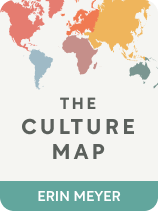

This article is an excerpt from the Shortform book guide to "The Culture Map" by Erin Meyer. Shortform has the world's best summaries and analyses of books you should be reading.
Like this article? Sign up for a free trial here .
What is cognitive trust? How do cognitive cultures approach professional relationships?
Erin Meyer, the author of The Culture Map, describes cognitive trust as trust that develops based on behaviors (as opposed to personal feelings). Cognitive cultures strictly delineate their personal and professional relationships.
In this article, we’ll look at how members of cognitive cultures build trust and present some tips you can use to build trust in a cognitive culture.
How Cognitive Cultures Build Trust
According to Meyer, members of cognitive cultures tend to actively avoid developing personal relationships with people they work with in order to avoid conflicts of interest.
For example, people in cognitive cultures might consider hiring a relative or somebody who you were introduced to through a relative to be a conflict of interest. But in other cultures, this might be the only way you got the interview in the first place.
Meyer contends that a key element of cognitive cultures is what happens after the professional relationship is severed. People from cognitive cultures still work to establish rapport with their colleagues and clients through icebreakers and socializing. But if somebody at your company is fired in a cognitive culture, this tends to signify the unceremonious end of your relationship. (Shortform note: This is usually due to people feeling awkward, but can be a more official ending. One American woman found herself struggling to remain friends with a former coworker because their ex-boss had asked them to cut contact. This is an extreme and awkward case in cognitive culture, but would be absolutely unthinkable in certain places around the world.)
People view members of cognitive cultures as superficial and inauthentic because knowing someone for years doesn’t actually mean you know them at all.
Countries where cognitive trust is the norm tend to have established legal systems and include the United States and the United Kingdom. Meyer argues that this is no coincidence: if you have reliable legal recourse when your business partner wrongs you, her personal character becomes less important. You assume that she’s reliable because she’s good at her job—otherwise, you wouldn’t be doing business with her. And on the off chance she isn’t, you can always sue. In this context, investing time in getting to know each other on a deep personal level becomes at best inefficient and at worst a waste of time.
(Shortform note: Although people from cognitive cultures might be more inclined to pursue legal recourse than other cultures, it’s often considered an unwise decision. For example, many people hesitate to sue their employers because they’re worried that if a new potential employer finds out about the lawsuit, they’ll never get hired again.)
How to Build Trust in Cognitive Cultures
Choose the most efficient way to communicate. Cognitive cultures tend to value efficiency over connection. So try sending an email instead of calling. If you do call, don’t be afraid to talk about your personal life—but keep it shorter than you might be used to.
(Shortform note: Even in cognitive cultures, people struggle to decide when to email and when to call. Try choosing your communication method based on how quickly you need an answer.)
Shorten your meals. Sharing a meal is a great way to bond with others. But inform your partners if the meal will last longer than 90 minutes, and try to keep it to 60. (Shortform note: Restaurants in countries where long meals are rare may kick you out after a set period. If you’ll exceed these times, consult the restaurant in advance.)
Let people go home. The fact that your colleagues don’t want to join you on a night out is normal behavior and generally not indicative of how much they respect you. If they visit you but want to return to their hotel after meetings, don’t take it personally. (Shortform note: Staying out all night with your coworkers may be good business in your culture, but other cultures may view this as unprofessional behavior. Learn and follow the norms of the country you’re working in.)

———End of Preview———
Like what you just read? Read the rest of the world's best book summary and analysis of Erin Meyer's "The Culture Map" at Shortform .
Here's what you'll find in our full The Culture Map summary :
- The eight axes you can use as a framework to analyze cultural differences
- How to better relate to those of another culture to accomplish business goals
- How the Vikings have more gender equality than we see today






